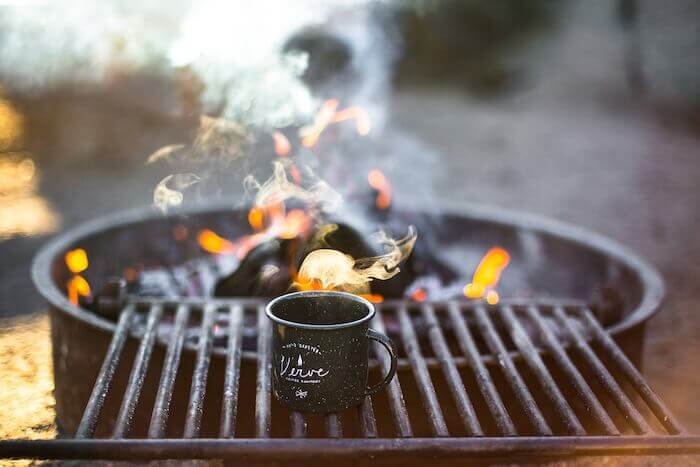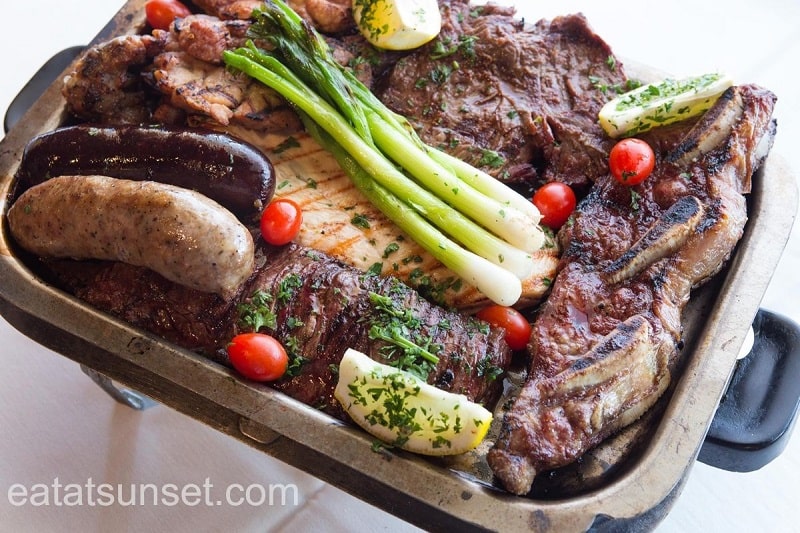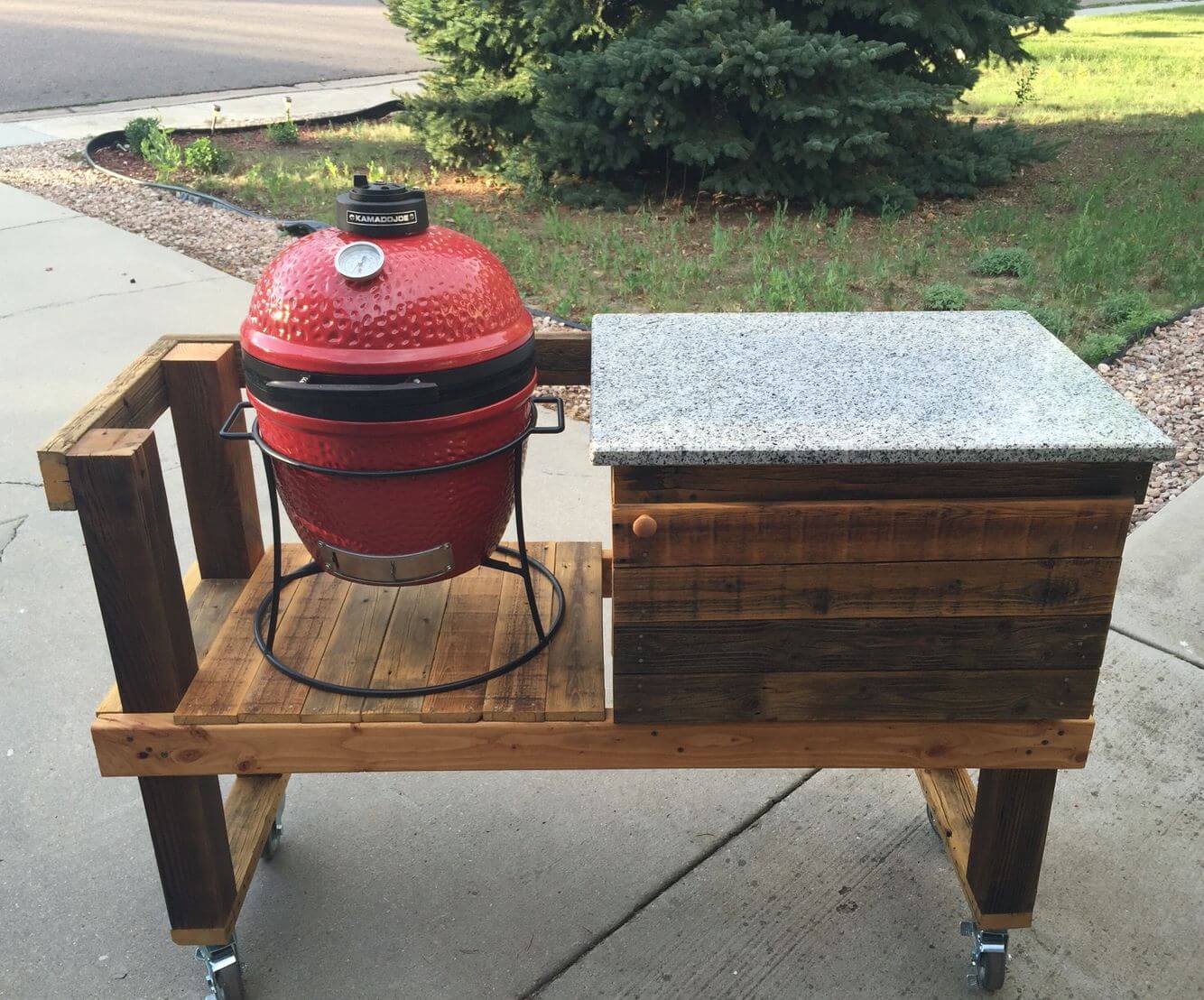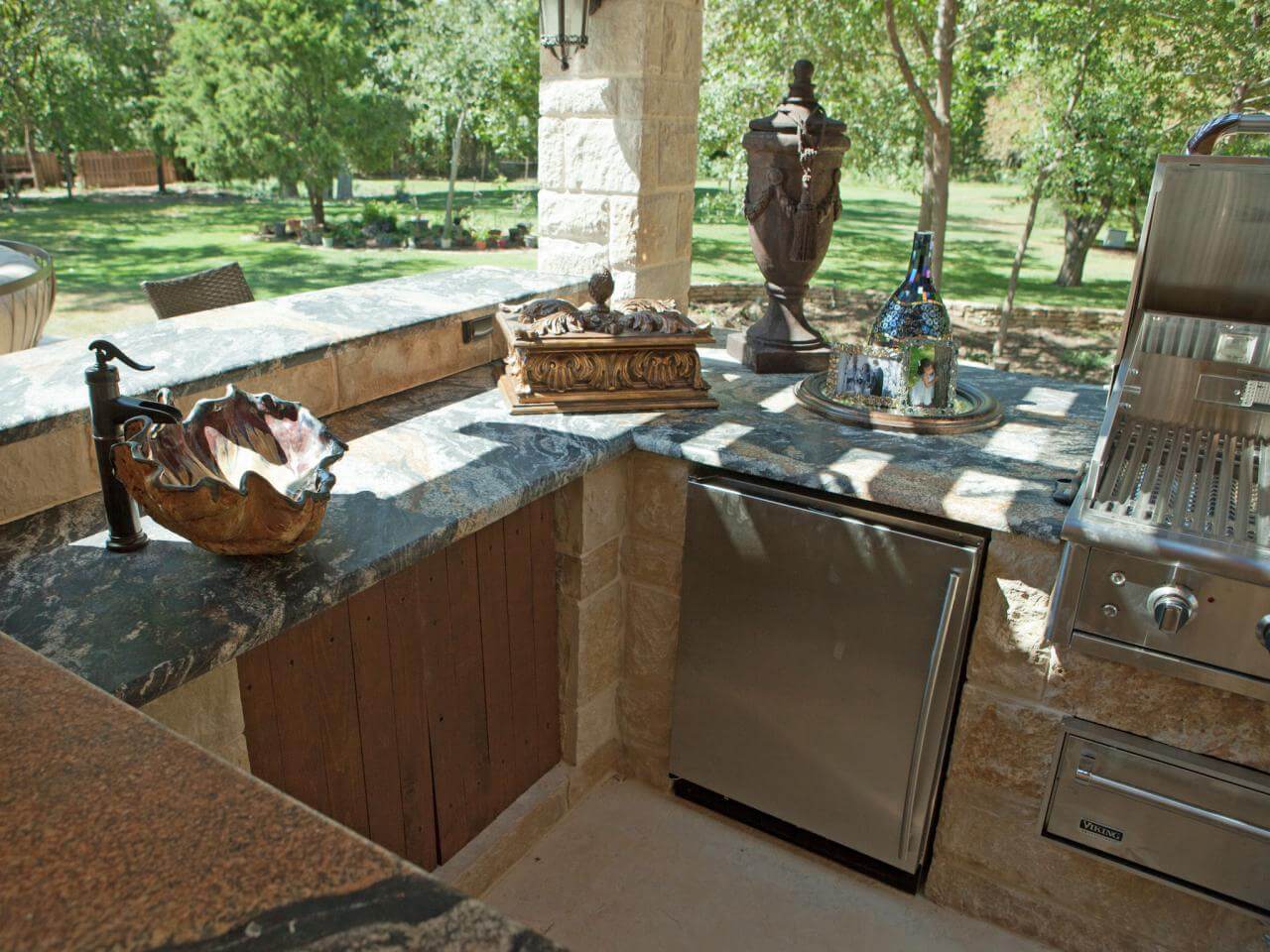
What Causes Mold On Grills – Have You Known Yet!
The parties are over, the food is over, but now your grill is in trouble. They are surrounded by mold!
Although you have cleaned and stored the grill very well, unfortunately, they are moldy. And even if you try to wash them with clean water and clean them, it doesn’t work. What are we supposed to do in the end!
This is bad, isn’t it? However, instead of being upset, we should find out what causes mold on grills and how to fix it!
Let’s get started with Sunset Bar and Grill!

What causes mold on grills and how to fix it!
What Causes Mold On Grills?
The short answer is as follows: when you store the grill under the lid, you accidentally cause the lid to retain moisture underneath.
Over time, this moisture cannot escape on its own, so it accumulates and becomes an ideal place for mold to grow. Just like that, mold is born and causes the grill to become damaged.
Surely here, there will be many questions that arise such as: “How do I prevent my grill from getting moldy?”. Of course, there is, but not everyone knows how to do it.
What are you waiting for, let’s find out right away!
How do I stop my grill from molding?
There are simple ways to help prevent your grill from getting moldy, but not many people know and notice.
We’ll help you list them out and show you some basic tips to help you remember them longer.
Here are some easy ways to do it!
Clean The Grill By Increasing The Temperature
One of the best ways to prevent mold from appearing on your grill is to superheat your grill. The right time is after you finish cooking.
The reason for this is because when the grill temperature increases, many mold cells will be destroyed. This minimizes the risk of mold growth later on.
But to do this, you must keep in mind the habit of heating the grill after grilling. You also need to maintain the maximum temperature for at least 30 seconds or 1 minute.
Clean Food Residue Left On The Grill
Accordingly, the residue on the grill also needs to be burned off during the healing process.
A good tip for you is to use a small knife or sharp object to remove excess residue, food, dirty oil, etc.
In general, anything left on the grill is likely to become a breeding ground for mold. So we need to get rid of them all from the start.

What is the note when cleaning the grill
Make Sure The Grill Is Dry
You need to pay attention to this. Check that after cleaning everything on the grill surface, the grill will be dry afterward. When the grill surface is dry, we will store them.
However, you must ensure that the lid of the container or the place where the grill is stored has a vent hole. This often prevents water from remaining in the grill, causing mold.
In short, getting the grill dry is the most important thing to prevent mold.
Steps To Remove Mold From The Grill
How do I stop my grill from molding? In this section, we will show you the basic steps to get rid of the mold if unfortunately, our grill has problems. Those mold removal steps include:
- Cleaning the grill: The most basic step is cleaning. In this step, you need to remove all the mold on the grill by heating them as described above.
- Prepare a cleaning mixture: This includes warm water and soap. But if you can, add a little baking soda for a better mixture!
- Increase grill temperature: This step is to preheat the grill. Make it as hot as possible. Because when the heat is hotter, the mold cells will quickly be destroyed. That way they will soon be destroyed under high heat and return your grill to its first state.
- Let it cool down: As soon as it cools down or the flame has ended, let your grill pan cool naturally. The next step is to scrape off everything your hands can touch. This cleaning may require a cleaning aid or a high-pressure washer. You should prepare from the beginning to save your time and effort.
- Wash: After everything is cleaned on your grill, you can simply wash them with soapy water. And this is the final step in removing dirt from the grill, so do it carefully!
- Heat again: Heating will be the last step in removing mold on the grill. This heating will ensure that everything on your grill is now soapy, moldy, or greased. All things will be solved through this final heating!

What to do when the grill is moldy?
How To Prepare Homemade Detergent?
The simple recipe includes wool salt, baking soda, steam spray, water, and a little hydrogen peroxide.
And the steps to clean the grill with a homemade cleaning solution are also very simple. You just need to follow these steps:
- Now you will start with using the grill to clean the dirt on the grill like coals, food, or even excess grease.
- Next, put white vinegar and warm water in a spray bottle, mix these two to form an antiseptic solution.
- Spray this mixture on the grill as soon as you finish removing the food residue
- If possible, prepare more aluminum foil and proceed to rub it on the surface of the grill. Rubbing aluminum foil over the grill will help remove any remaining dirt.
- Keep repeating this until the mold and stains are completely removed.
- Finally, burn the grill over high heat to make sure any mold is destroyed.
Frequently Asked Questions (FAQs)
1. At what temperature does the oven kill mold?
The answer is that the greater the heat, the better. However, as soon as you raise the grill’s temperature, try to keep the grill’s preheat time above 140 degrees Fahrenheit for the first 1 minute.
2. What tools do you use to treat stains on the grill?
You can use a small knife, a compact sharp item to deftly remove the stain. It’s best to have the grill pan pre-cleaned with a basic cleaning mixture first to make it easier to pick up stains.
3. Should I wear a mask when cleaning mold for the grill?
The answer is yes. Cleaning the grill can cause some respiratory discomfort to lead to lung disease. Better yet, buy yourself a 3M mask to protect yourself while cleaning mold for your grill.
Conclusion
Now, it’s good to know What Causes Mold On Grills and ways to prevent mold on the grill. We were able to confidently clean the mold effectively and still ensure the grill is durable over time.
See more:




